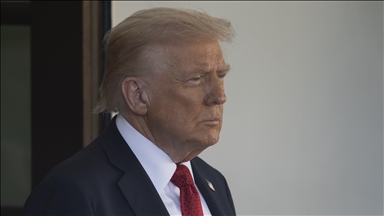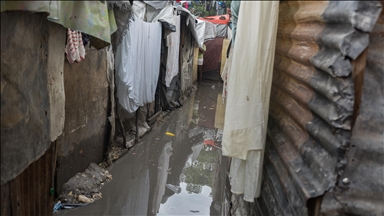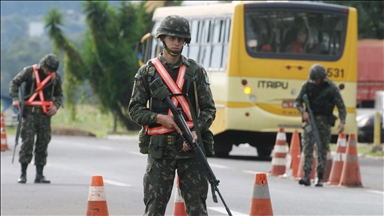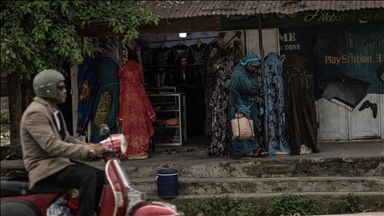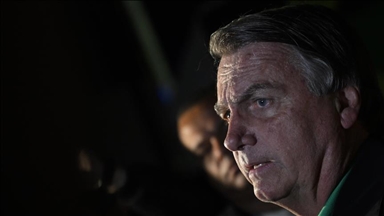Latin America 2024: A year marked by elections, protests, diplomatic strains
Major events that shaped Latin America in 2024 reviewed by Anadolu
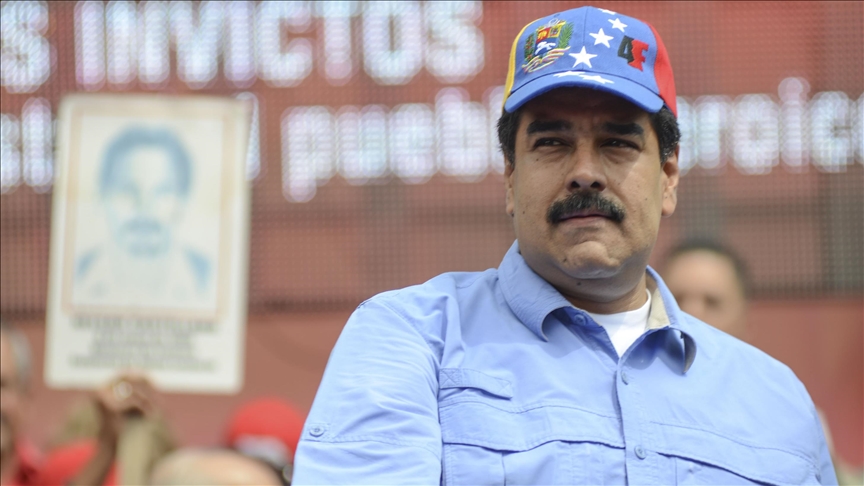 President of Venezuela Nicolas Maduro
President of Venezuela Nicolas Maduro
BOGOTA
In Latin America, pivotal elections, widespread protests, natural disasters, and diplomatic controversies were among the events occurred in 2024.
Each country faced unique challenges, underscoring the region’s dynamic and often volatile political landscape.
From historic milestones to violent clashes, here’s a country-by-country breakdown of the region’s most significant events.
Mexico: A historic presidency and diplomatic row
Claudia Sheinbaum became Mexico's first female president on June 2, a landmark moment celebrated across the nation.
However, the year was marred by tensions with Ecuador after police raided the Mexican Embassy in Quito to detain former Ecuadorian Vice President Jorge Glas.
In response, Mexico suspended diplomatic activities in Ecuador and filed a case at the International Court of Justice.
A prolonged heat wave also took a toll, claiming over 155 lives.
Venezuela: Contested elections and international fallout
President Nicolas Maduro secured his third term on July 29, sparking allegations of fraud and violent clashes that left 25 people dead.
Maduro demanded the withdrawal of diplomats from several countries that questioned the results.
A social media spat with Elon Musk, culminating in Maduro challenging Musk to a duel, captured public attention.
Meanwhile, diplomatic relations with Spain deteriorated after Madrid supported opposition leader Edmundo Gonzalez, leading Venezuela to recall its ambassador.
Brazil: Natural disasters and diplomatic moves
Heavy rains in May claimed the lives of more than 200, while a passenger plane crash in August killed 62 people.
Brazil also faced international tensions, withdrawing its ambassador from Israel over the Gaza conflict and issuing strong condemnations of Israeli actions.
President Luiz Inacio Lula da Silva recovered from surgery in December, concluding a year defined by crises and recovery efforts.
Colombia: Diplomatic breaks and domestic struggles
President Gustavo Petro severed diplomatic ties with Israel, citing the Gaza conflict, and opened an embassy in Ramallah.
Domestically, Colombia faced devastating floods and landslides, prompting a national disaster declaration.
The government ended cease-fires with two major rebel groups, reigniting violence.
Protests against Petro’s administration added to the challenges of a turbulent year.
Argentina: Economic strife and bold statements
President Javier Milei faced relentless protests against his economic policies, often escalating into violent clashes.
His recognition of Venezuelan opposition leader Edmundo Gonzalez as the legitimate president and calls for a coup against Maduro strained regional relations.
Demonstrations reflected deep public dissatisfaction with Milei’s governance.
Chile: Protest and resilience
Chile grappled with deadly forest fires in February and a 7.4-magnitude earthquake in July.
Protests erupted frequently against Israel's actions in Gaza, with demonstrators demanding severance of diplomatic ties.
In April 2024, President Gabriel Boric, described Israel's ongoing attacks in Gaza as "barbarism."
Bolivia: Political unrest and diplomatic tensions
A failed coup attempt against President Luis Arce underscored Bolivia’s political instability.
Protests were frequent, and diplomatic relations with Argentina soured after conflicting interpretations of the coup attempt led Bolivia to recall its ambassador.
Peru: Death, sentences and summit
Political turmoil dominated the year, with Prime Minister Alberto Otarola resigning amid corruption allegations.
Former President Alberto Fujimori, who was sentenced to prison for corruption and abuse of power, died on Sept. 12 at the age of 86.
Another former President Alejandro Toledo was sentenced to 20 years and 6 months in prison on Oct. 22 in a corruption case involving the Brazilian company Odebrecht.
The APEC Summit in Lima spotlighted Peru on the global stage, with leaders emphasizing trade and cooperation.
Ecuador: Attacks, raids and drought
The year began with armed attacks on institutions, prompting mass arrests of gang-related individuals.
A police raid on the Mexican Embassy to detain former Vice President Jorge Glas caused a diplomatic fallout.
Severe drought led to an "energy emergency" declaration, with mandatory power cuts across the nation.
Panama: Presidential election and political rejections
Former Public Security Minister Jose Raul Mulino won the May 6 presidential election.
He firmly rejected US President-elect Donald Trump’s remarks about reclaiming the Panama Canal, emphasizing Panama’s sovereignty.
El Salvador: Re-election
President Nayib Bukele secured reelection, beginning his second term on June 2.
His leadership continued to draw attention for its strongman approach to governance.
Uruguay: Political shift
Left-wing candidate Yamandu Orsi won the presidential runoff election on Nov. 25, marking a shift in the political landscape.
Paraguay: Aligning with Israel
Paraguay officially moved its embassy from Tel Aviv to Jerusalem on Dec. 12, underscoring its diplomatic alignment with Israel.
Dominican Republic: Stability despite tensions
President Luis Abinader was reelected on May 20, maintaining stability in the country’s leadership during a year of regional turmoil.
Haiti: Gang violence, resignations
Haiti faced a dire security crisis, with gang violence leading to prison breaks and mass killings.
Prime Minister Ariel Henry resigned in April, succeeded by businessman Alix Didier Fils-Aime in November.
Approximately 200 people were killed in a gang attack on Dec. 10, marking one of the year’s deadliest incidents.
*Writing by Gizem Nisa Cebi in Istanbul
Anadolu Agency website contains only a portion of the news stories offered to subscribers in the AA News Broadcasting System (HAS), and in summarized form. Please contact us for subscription options.


